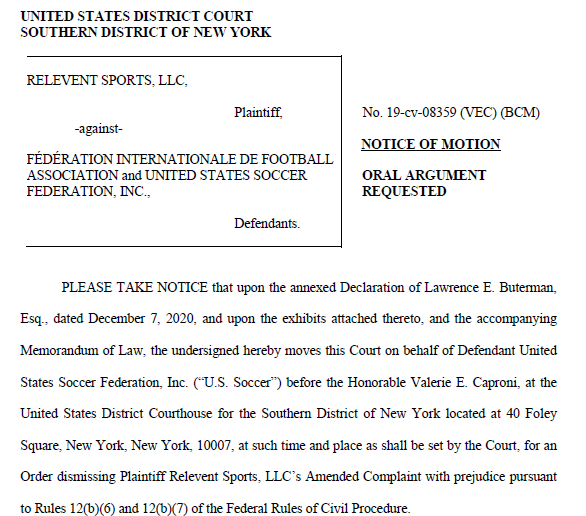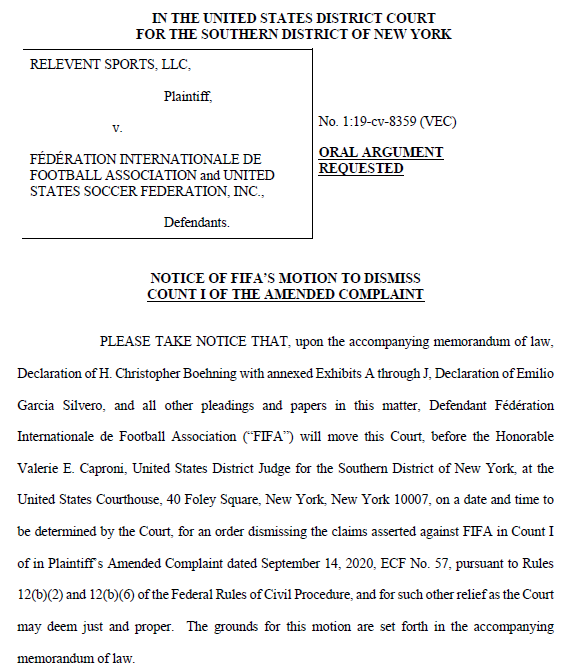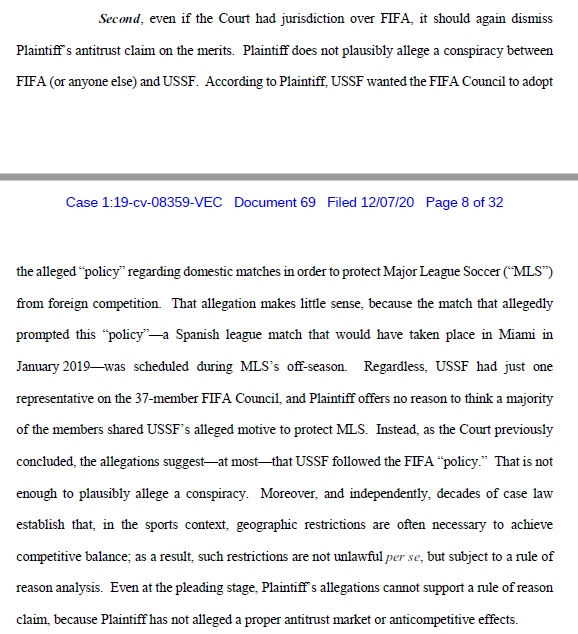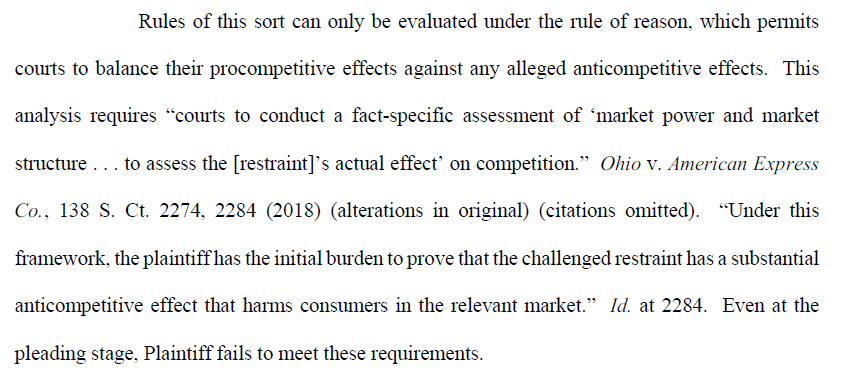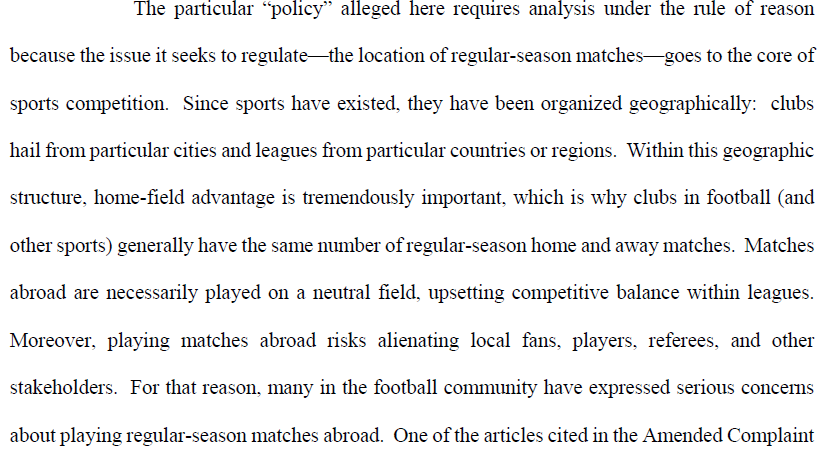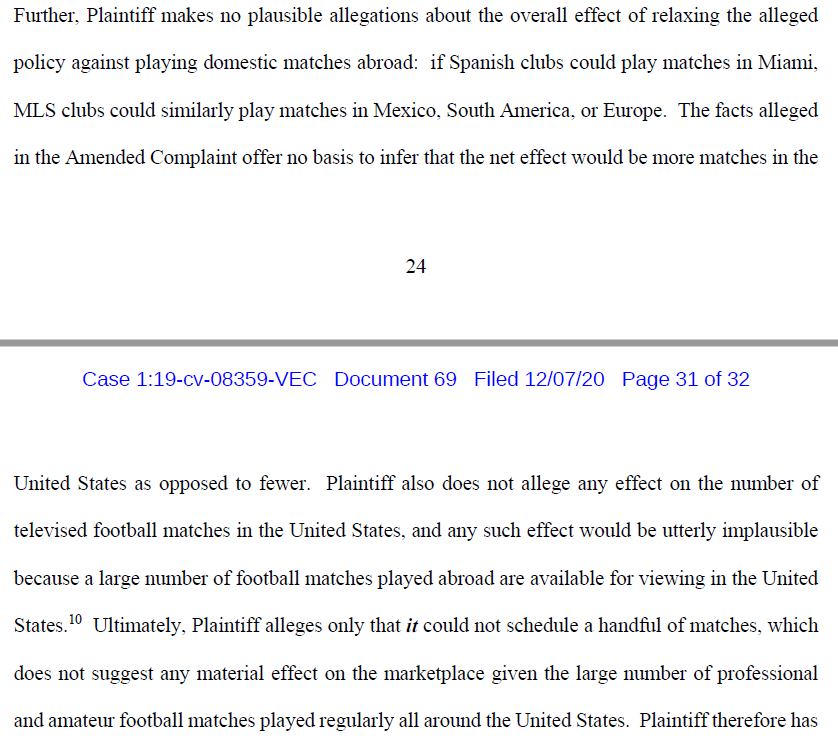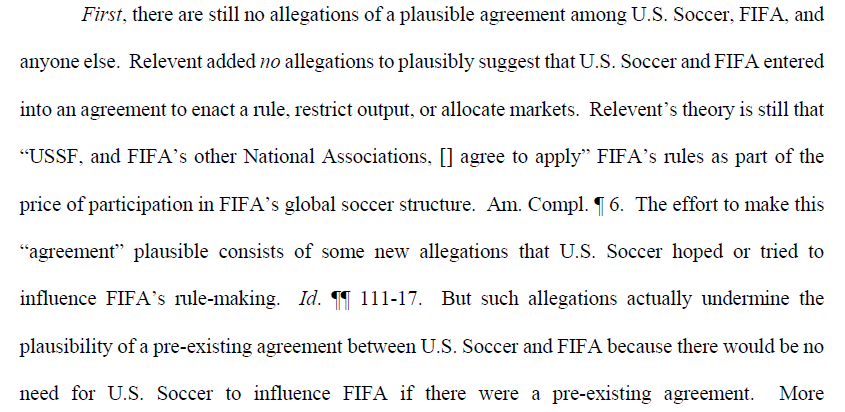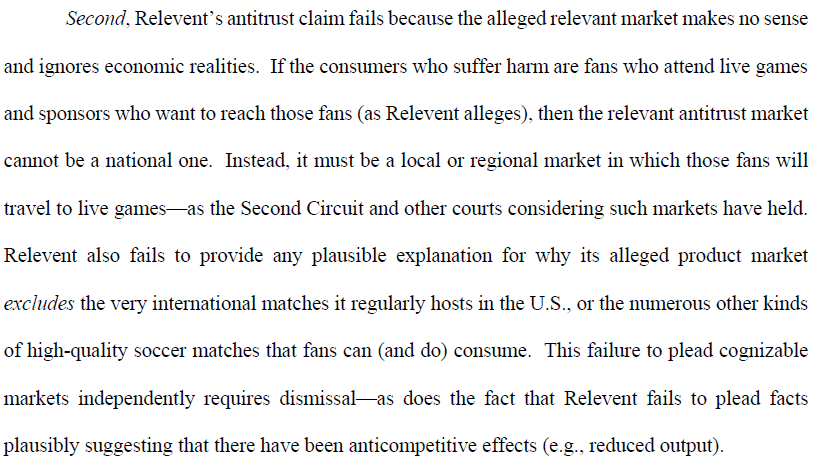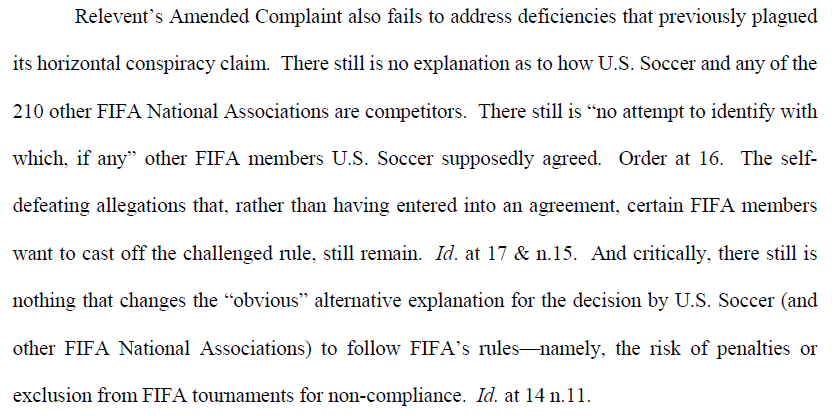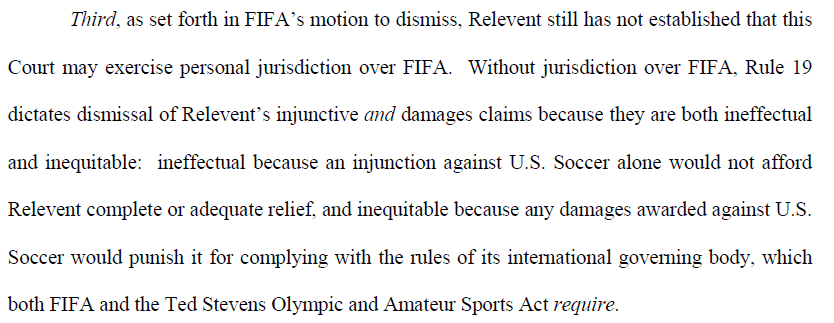US Soccer and FIFA both filed motions to dismiss yesterday in the antitrust lawsuit filed against them by Relevent Sports for failing to permit regular season league matches from Spain and elsewhere to be played in the US
FIFA has two main arguments. The first is lack of jurisdiction. This is a key issue b/c in dismissing the original complaint the court emphasized that any court remedy would be ineffective if FIFA was not subject to it
The main arguments against jurisdiction is that FIFA's contacts are not regular and continuous and not related to the activity alleged in the complaint.
FIFA's second argument is that there is no conspiracy. USSF only has one vote, there's no reason to protect MLS specifically, and MLS was in the offseason during the Spanish league match in question
Even if there is a conspiracy, a defendant in an antitrust case not involving a prima facie violation can survive a challenge under a rule of reason analysis, which involves the procompetitive and anticompetitive effects
FIFA defends geographical limits on competition. FIFA is clearly trying to invoke a measure of sports exceptionalism here, which is a more well-accepted doctrine in Europe, but still exists in the US
FIFA also argues that the harm to consumers is overstated. If access to D1-level league matches is the determinant, FIFA correctly notes that focusing on availability of more Euro league games ignores the possibility of fewer MLS games (b/c they would shift abroad).
In raising Euro competition for TV games (which Relevent had defined to exclude), it's noteworthy that FIFA cites a 2015 article from @PaulTenorio. I'm not surprised by the older date. More recent articles might have griped about NBC's Peacock and diminished access to BeIN Sport
USSF filed a separate motion to dismiss. Its first argument is that no agreement was alleged between USSF and anyone else, especially since FIFA's Rule 73 is long-standing limit on cross-border league matches.
USSF's second argument is that the market is not defined in a way that demonstrates consumer harm. That's b/c Relevent defines the market as a nat'l market for live sports, but only regular season league games, which naturally excludes a lot of games consumers to get now
USSF's third argument is basically the same argument FIFA made about the lack of evidence of a horizontal conspiracy. USSF claims that they were just following the FIFA rules, which is not enough to establish an antitrust conspiracy
Finally, USSF also invokes FIFA's argument against jurisdiction. As the court held previously, if FIFA can't be subject to its jurisdiction, then the rule would still prevent other FA's from moving their games to the US, frustrating the whole purpose of the suit
We'll see how Relevent responds to these defenses, but they still have a big hill to climb given the court's initial grant of USSF's motion to dismiss (w/ leave to amend the complaint).
Intuitively, excluding non-US league matches seems like protectionism, but legally, it is hard to make a credible allegation that USSF conspired with FIFA to protect MLS under a policy that has largely kept league games separated around the world for years.

 Read on Twitter
Read on Twitter